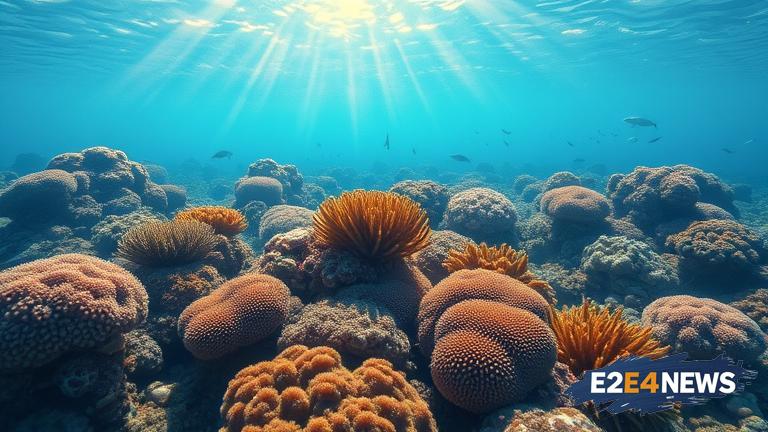A recent study has found that coral reefs have not only survived but actually thrived in warmer seas, challenging the long-held narrative that climate change is the primary driver of coral reef decline. The research, which analyzed coral reef data from around the world, suggests that these vital ecosystems are more resilient than previously thought. Coral reefs, often referred to as the ‘rainforests of the sea,’ are home to a vast array of marine life and play a critical role in supporting commercial fisheries and protecting coastlines from erosion. Despite concerns about the impact of climate change on coral reefs, the new study reveals that many reefs have adapted to warmer waters and are even flourishing in some areas. The findings have significant implications for our understanding of the relationship between coral reefs and climate change, and could inform new strategies for conserving and managing these ecosystems. The study’s authors note that while climate change is still a major threat to coral reefs, it is not the only factor at play, and that other human impacts such as overfishing and pollution may be more significant drivers of reef decline. The research also highlights the importance of considering the complex interactions between coral reefs and their environment, rather than relying on simplistic narratives about the impact of climate change. Coral reefs have been on the planet for millions of years, and have survived numerous periods of warming and cooling. The new study suggests that these ecosystems are capable of adapting to changing conditions, and that conservation efforts should focus on addressing the root causes of reef decline, rather than just mitigating the effects of climate change. The findings have been met with a mixture of surprise and skepticism by the scientific community, with some experts hailing the research as a major breakthrough, while others have raised concerns about the methodology and conclusions. As the debate continues, one thing is clear: the relationship between coral reefs and climate change is more complex than previously thought, and further research is needed to fully understand the dynamics at play. The study’s authors are calling for a more nuanced approach to coral reef conservation, one that takes into account the multiple stressors facing these ecosystems, and seeks to address the underlying causes of reef decline. This could involve implementing more effective fisheries management, reducing pollution, and protecting habitats from destruction. The research also highlights the importance of supporting sustainable tourism and recreation in coral reef areas, as these activities can provide important economic benefits while also promoting conservation. As the world continues to grapple with the challenges of climate change, the new study on coral reefs serves as a reminder that there is still much to be learned about the complex relationships between human and natural systems. By challenging our assumptions and pushing the boundaries of our knowledge, we can work towards a more sustainable future for coral reefs and the many communities that depend on them. The study’s findings have significant implications for policy and management, and could inform new approaches to conservation and sustainability. As we move forward, it will be important to consider the complex interactions between coral reefs and their environment, and to develop strategies that address the root causes of reef decline. This could involve a range of measures, from reducing greenhouse gas emissions to promoting sustainable land use practices. Ultimately, the fate of coral reefs will depend on our ability to balance human needs with the need to protect these vital ecosystems. The new study provides a timely reminder of the importance of coral reefs, and the need for continued research and conservation efforts to protect these ecosystems for future generations.
